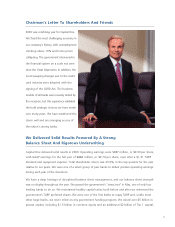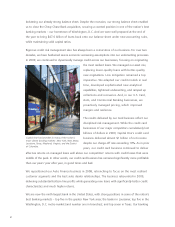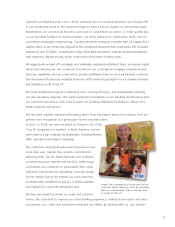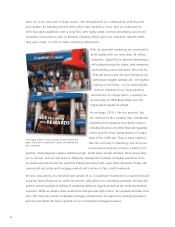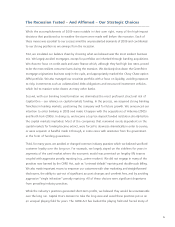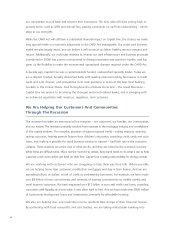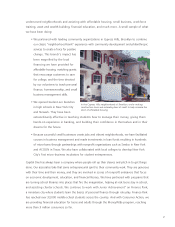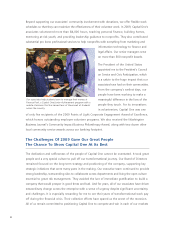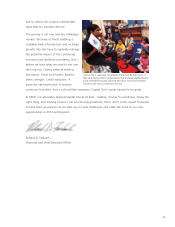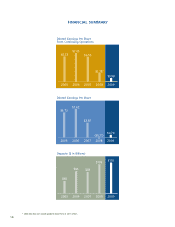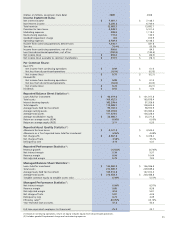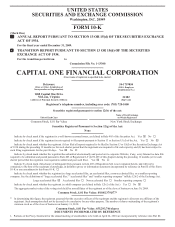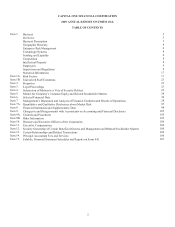Capital One 2009 Annual Report Download - page 6
Download and view the complete annual report
Please find page 6 of the 2009 Capital One annual report below. You can navigate through the pages in the report by either clicking on the pages listed below, or by using the keyword search tool below to find specific information within the annual report.
The Recession Tested – And Affirmed – Our Strategic Choices
While the accomplishments of 2009 were notable in their own right, many of the high-impact
decisions that positioned us to weather the storm were made well before the recession. Each of
these moves was essential to our success amid the unprecedented demands of 2009 and contributed
to our strong position as we emerge from the recession.
First, we insulated our balance sheet by choosing what we believed was the most resilient business
mix. We largely avoided mortgages, except for portfolios we inherited through banking acquisitions.
We chose to focus on credit cards and auto finance which, although they had high loss rates, proved
to be the most resilient consumer loans during the recession. We decisively shut down the GreenPoint
mortgage originations business early in the cycle, and appropriately marked the Chevy Chase option
ARM portfolio. We also managed our securities portfolio with a focus on liquidity, avoiding exposure
to risky investments such as collateralized debt obligations and structured investment vehicles,
which led to massive write-downs at many other banks.
Second, with our banking transformation we eliminated the most profound structural risk of
Capital One – our reliance on capital markets funding. In the process, we acquired strong banking
franchises in leading markets, positioning the company well for future growth. We announced our
intention to enter banking in 2003 and made it happen with the acquisitions of Hibernia (2005)
and North Fork (2006). In doing so, we became a top ten deposit funded institution shortly before
the capital markets imploded. Most of the companies that remained overly dependent on the
capital markets for funding became extinct, were forced to downsize dramatically in order to survive,
or were acquired. A handful made it through, in some cases with assistance from the government
in the form of funding guarantees.
Third, for many years, we avoided or changed common industry practices which we believed sacrificed
customer loyalty over the long run. For example, we largely stayed on the sidelines for years in
segments of the card market where the economic model was premised on lengthy 0% teasers
coupled with aggressive penalty repricing (e.g., prime revolver). We did not engage in many of the
practices now banned by the CARD Act, such as “universal default” repricing and double-cycle billing.
We also made important moves to empower our customers with clear marketing and straightforward
disclosures, the ability to opt-out of significant account changes and overlimit fees, and by avoiding
aggressive “single infraction” penalty repricing. All of these choices were significant departures
from prevailing industry practices.
While the industry’s practices generated short-term profits, we believed they would be unsustainable
over the long run. Capital One’s decision to take the long view and avoid these practices put us on
an unequal playing field for years. The CARD Act has leveled the playing field and forced many of
5


